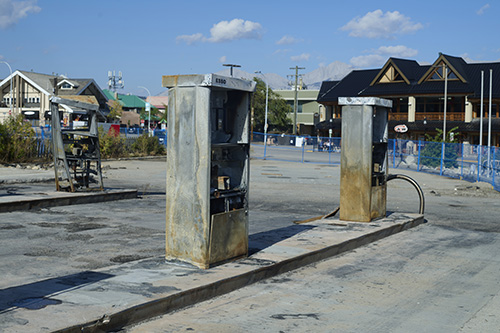An Alberta judge has rejected an attempt to block a court review of a proposed referendum question on whether the province should separate from Canada, setting the stage for a high-profile legal hearing later this year.
In a written decision released this week, Court of King’s Bench Justice Colin Feasby denied the Alberta Prosperity Project’s application to quash the review, saying it would benefit democracy to have the constitutionality of the question fully examined.
“A referendum on Alberta independence that could lead to the breakup of Canada is serious business,” Feasby wrote. “There are legitimate arguments on both sides of the issue, and Albertans deserve the confidence that the question is lawful before it proceeds.”
The matter stems from Alberta’s Chief Electoral Officer, Gordon McClure, who last month referred the proposed referendum question to the court to determine if it violates the Constitution, including protections for Indigenous treaty rights. The question, submitted by the Alberta Prosperity Project, reads:
“Do you agree that the Province of Alberta shall become a sovereign country and cease to be a province in Canada?”
The group’s lawyer, Jeffrey Rath, argued the referral was premature, noting there was no certainty the initiative would garner the required signatures to trigger a vote. He also maintained that merely posing a question does not violate the Constitution.
Justice Minister Mickey Amery and Premier Danielle Smith have both publicly criticized McClure’s decision to seek a court ruling before signatures are gathered. They contend the proposal should be approved first, with judicial scrutiny occurring only if voters approve the measure in a referendum.
“Alberta’s government believes that the proposal is not unconstitutional and therefore should be approved and permitted to proceed,” Amery’s press secretary, Heather Jenkins, said in a statement. “It is settled law that any province is entitled to consult its population by referendum on any issue.”
Justice Feasby rejected arguments to stop the review, stating McClure was fulfilling his duty and following “international best practices” for administering referendums. He said early judicial examination prevents unconstitutional questions from proceeding to a public vote, preserving the legitimacy of the process.
A letter from Amery’s counsel confirmed the minister plans to make submissions if the review moves ahead. Several other groups, including the Athabasca Chipewyan First Nation in northern Alberta, have expressed interest in participating, citing concerns over the question’s potential impact on treaty rights.
The court has scheduled a three-day hearing in November to assess whether the proposed referendum question complies with the Constitution and other governing laws. If the question is approved, the Alberta Prosperity Project, led by CEO Mitch Sylvestre, would have four months to collect 177,000 valid signatures under new provincial citizen-initiative rules.
The separation movement in Alberta has gained intermittent attention in recent years, often linked to frustrations over federal energy policy, equalization payments, and perceived Western alienation. While polls show most Albertans oppose outright independence, a minority supports greater autonomy or a sovereignty-style framework within Canada.
The separation question is not the only political petition underway. In June, McClure approved a competing proposal from former Progressive Conservative deputy premier Thomas Lukaszuk. His question asks whether Alberta should adopt an official policy never to separate from Canada.
Because Lukaszuk’s application was approved before the new rules took effect, his campaign faces a higher threshold — nearly 300,000 signatures in 90 days — to secure a place on the ballot. His petition drive began earlier this month.
Whether either initiative meets the signature requirements remains uncertain, but the court’s decision guarantees that the legal fate of Alberta’s most contentious referendum question will be decided before it reaches voters.
For Justice Feasby, the principle is clear: constitutional compliance must be determined before Albertans cast a vote on an issue that could redefine the province’s place in Confederation.
The November hearing will now serve as the battleground where questions of law, sovereignty, and democratic process converge — with national unity and treaty rights at the heart of the debate.
Judge Rules Alberta Separation Question Deserves Full Constitutional Review
Court rejects bid to halt hearing on sovereignty referendum proposal
In response to Canada's Online News Act and Meta (Facebook and Instagram) removing access to Canada's local news from their platforms, Anchor Media Inc encourages you to get your news directly from your trusted source by bookmarking this site and downloading the Rogue Radio App. Send your news tips, story ideas, pictures, and videos to info@anchormedia.ca.








